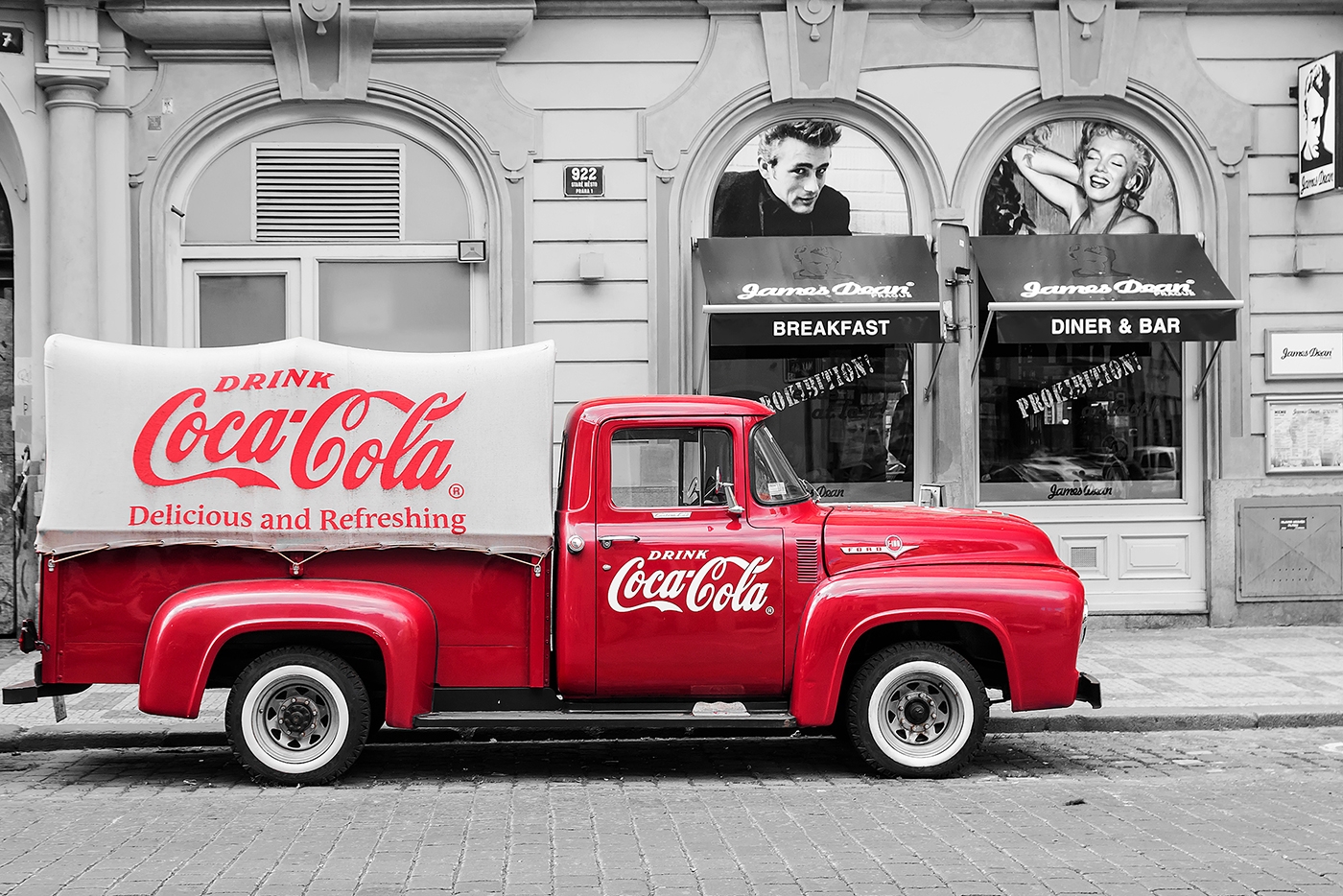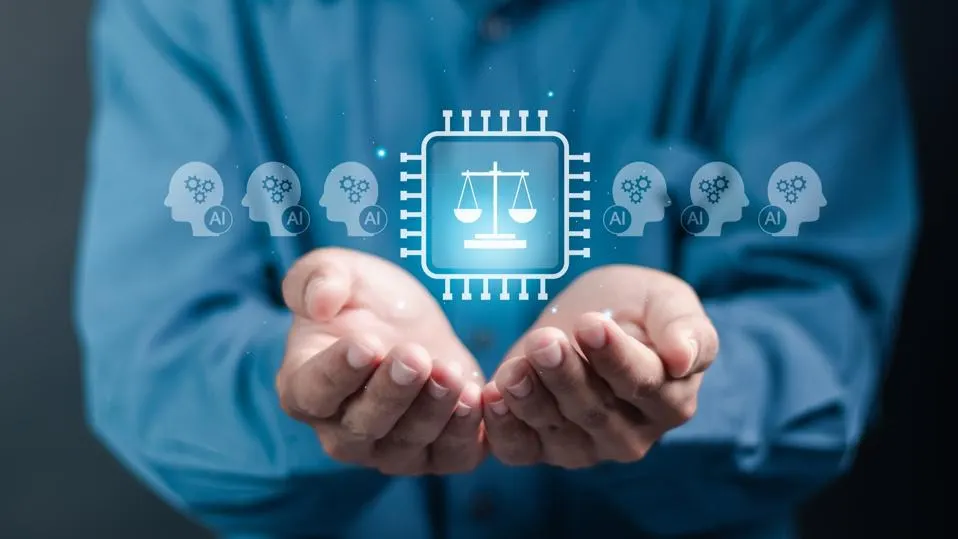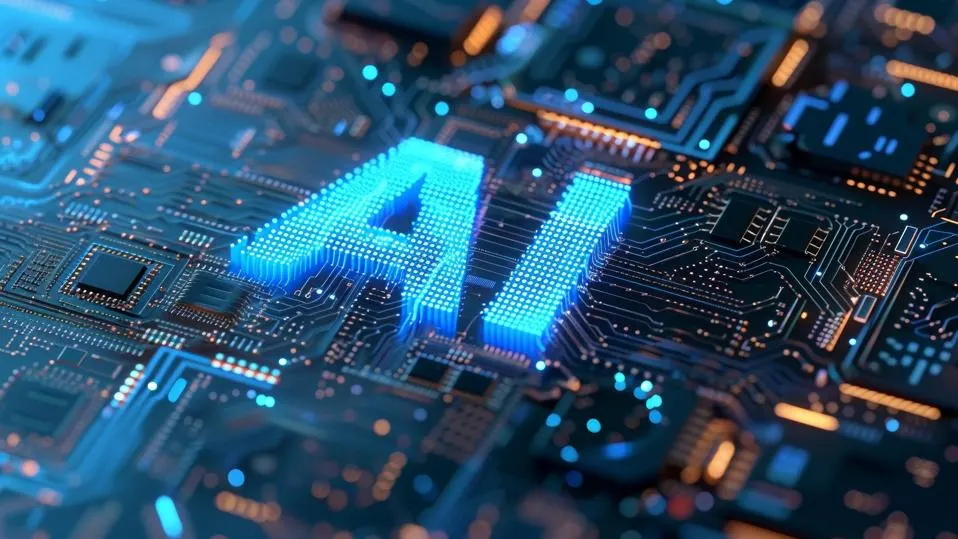The Amazing Ways Coca-Cola Uses Generative AI In Art And Advertising
17 September 2023
Some say that in the very near future, we’ll need to either adopt artificial intelligence (AI) or be made redundant by it – or by others using it. If this is true, artists, designers and other creatives are more at stake than most.

So, it’s interesting to see big companies like Coca-Cola choosing to kickstart their own generative AI journey with projects directed at including and enabling creatives.
The company has recently appointed a global head of generative AI, Pratik Thakar – becoming one of the first major multinationals to do so. It's a sure sign of how important it thinks the technology will be.
In addition, it’s won acclaim with a stunning AI-generated advertising campaign that really shows how AI, combined with human talent, can bring the wow factor.
Running through its other initiatives is a theme of empowering independent creators and small studios with the opportunities of generative AI.
The message seems to be that artists have nothing to fear from AI and should instead embrace its power to enhance their own skills.
Which sounds great - but does it actually hold water?
Here’s an overview of some of the ways that the world’s most famous soft drink company is using (or planning to use) generative AI. These are use cases that, while technically excellent, raise interesting questions about how AI will change the relationship between technology, artists and the corporations that put the money on the table.
Head of Generative AI
This year, Coca-Cola appointed Pratik Thakar as the global head of generative AI. Speaking to The Drum, he said that he believes AI will bridge the gap between human creativity and brand identity.
He said, "Coca-Cola has always bridged the divide … how do we make it more approachable … more palatable and something which is useful to everyone?”
Thakar believes that the democratization of AI means the democratization of Coca-Cola – or its brand identity, at least. The plan is to achieve this by making tools that let anyone play around with new ways of communicating that identity.
Ethics are an important aspect of AI, and you’d hope they would be a concern for the man in charge of it across operations as huge as Coca-Cola’s. So it’s reassuring that he’s made a commitment to ensuring his company carefully selects its technology partners based on knowing that their models are trained “in the right way.”
Generative Video Advertising
Among the first fruits of Coca-Cola’s move into generative AI is the advert Masterpiece. This critically acclaimed video brings to life some of the world’s most famous works of art, seamlessly integrating AI-augmented animation with live action.
It was created in collaboration with OpenAI, using their DALL-E2 generative image model and ChatGPT.
It’s a result of a partnership formed earlier in 2023 when Coca-Cola announced it was working with the agency Bain and Company to find innovative generative AI use cases in marketing and advertising.
The drinks manufacturer’s involvement with AI is long-standing, though, with predictive and prescriptive AI already in use for localized and personalized marketing initiatives.
Masterpiece works on several levels. It’s a visually impressive piece of content that communicates brand identity. It’s also a signal that Coca-Cola is looking for people who can use generative AI to do amazing things. Finally, it serves as an announcement that generative AI has arrived in the advertising industry, and it’s about to shake things up.
Empowering Creativity?
In line with Thakar’s stated belief in helping creatives to unlock the power of AI, Coca-Cola held its first Real Magic Creative Academy this year.
The event helped it to build connections with the independent art and design community. By fostering these relationships, it hopes to unearth the talent and inspiration it needs to follow up Masterpiece.
It’s an extension of the brand’s Create Real Magic campaign, which invited artists to use its digital platform to create images using Coke’s platform and assets, with the winning images going on display on billboards in New York and London.
Staying on the theme of empowering creatives, there’s also Coke Studio. This is a free music-making platform, now augmented with generative AI capabilities.
Hosted at various festivals around the US, visitors are able to create songs, music videos and even album covers by answering questions posed by a ChatGPT-powered bot.
Once they've completed the process, which involves being filmed in a green room studio and inserted into their video, their creations can be downloaded and shared.
It’s clear that the brand wants to be associated with AI and the upcoming generation of artists and creators that it believes will use it. Of course, it probably isn't a coincidence that many of them, because of what they do, are likely to be identified by marketers as influencers.
Is this really good for human creatives?
As generative AI becomes commonplace in advertising, we can’t ignore the implications for broader society, and in particular for human creatives working in this fast-changing field.
Appointing a head of generative AI is a big statement from any company that they understand the power that the technology has to transform their business. But when a company like Coca-Cola does it, it means they know it’s going to transform an entire industry. If you’re a working artist or other creative, reliant on businesses and enterprises to hire and commission you, is it a transformation that’s in your best interests?
We’ve seen that generative AI enables opportunities to create and express ideas in new and amazing ways. It also democratizes the creative process, meaning independent artists and small studios can create work that can compete with that of large agencies.
But there are very real fears that industries that have always paid creatives for everything from company logos and packaging design to cinematic adverts will divert that money into AI art. So, some creatives might see this as being given the tools to dig their own graves!
Another concern is that the growing closeness between industrial and tech giants like Coca-Cola and OpenAI, fostered by the AI boom, demonstrates that not everyone has equal access to these world-changing tools. We commonly see AI providers offering superior access to enterprise users. By securing access to the newest and most powerful models and algorithms, could we be heading for a future where corporations have even greater influence than they do now on the world of art and design?
Personally, though, I don’t believe any of these are predetermined outcomes. The steps we take in coming years to ensure the responsible and ethical rollout of AI into society managing its impact on human lives, will determine the world we end up with.
I think it will be a long time before human creativity can be completely simulated. The Masterpiece advert wouldn’t have been possible to make without human input. And I don’t think it would be able to come up with something that could become as iconic as the Coca-Cola logo itself. Or of Santa Claus in a red coat.
Of course, that doesn’t mean businesses won’t try to use it to save money where they can, particularly on repetitive work – such as mass personalization, for example. But in the near term, as a commercial artist or designer, being able to augment your skills with AI is likely to open doors to new and interesting opportunities.
Related Articles
Will AI Solve The World’s Inequality Problem – Or Make It Worse?
We are standing on the cusp of a new technological revolution. AI is increasingly permeating every aspect of our lives, with intelligent machines transforming the way we live and work.[...]
How You Become Irreplaceable In The Age Of AI
In a world where artificial intelligence is rapidly advancing, many of us are left wondering: Will AI take our jobs?[...]
Why Apple Intelligence Sets A New Gold Standard For AI Privacy
In the rapidly evolving world of artificial intelligence, privacy concerns have become a hot-button issue.[...]
Can Your Device Run Apple Intelligence? What You Need To Know
Apple's announcement of Apple Intelligence has sent waves of excitement through the tech world.[...]
10 Amazing Things You Can Do With Apple Intelligence On Your IPhone
Apple Intelligence is poised to revolutionize the iPhone experience, offering a suite of AI-powered tools that promise to make your digital life easier, more productive, and more creative.[...]
Agentic AI: The Next Big Breakthrough That’s Transforming Business And Technology
The world of artificial intelligence is evolving at a breakneck pace, and just when you thought you'd wrapped your head around generative AI, along comes another game-changing concept: agentic AI.[...]
Sign up to Stay in Touch!
Bernard Marr is a world-renowned futurist, influencer and thought leader in the fields of business and technology, with a passion for using technology for the good of humanity.
He is a best-selling author of over 20 books, writes a regular column for Forbes and advises and coaches many of the world’s best-known organisations.
He has a combined following of 4 million people across his social media channels and newsletters and was ranked by LinkedIn as one of the top 5 business influencers in the world.
Bernard’s latest book is ‘Generative AI in Practice’.










Social Media